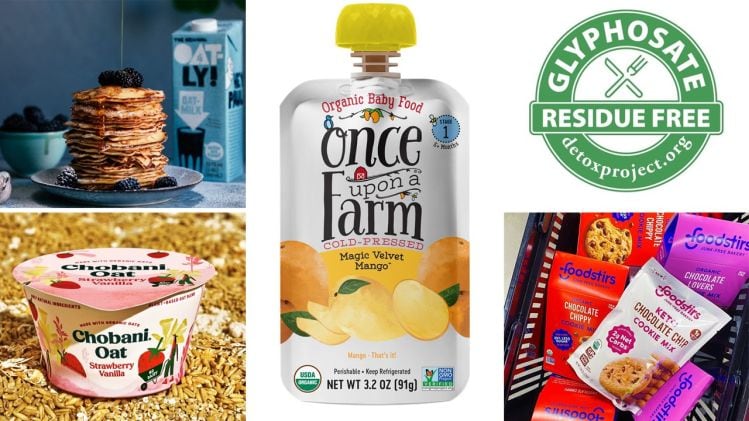“Lupin is a pulse that’s grown all around the world, and it’s known to be quite bitter, but you can breed the bitterness out,” Lorenzen told FoodNavigator-USA.
“We’ve partnered with a seed supplier allowing us to leverage a sweet lupin variety that has a little fat, a lot of fiber and a ton of protein, so it’s ideal for low-carb bakery solutions.
“The first product is a sweet lupin flour that involves fairly minimal processing, we’re just de-hulling and milling it. But we’re also making a defatted sweet lupin protein in Iowa where we work with a partner manufacturer.”
Pea syrup… coming in Q4
Minneapolis-based PURIS – which has recently developed an organic pea starch that can serve as an alternative to pectin and gelatin in gummies – is also bringing out organic pea syrup in Q4, 2020, said Lorenzen.
“Brown rice and tapioca syrup have replaced corn syrups in many products as people have looked for Non-GMO options, but most of it is imported. We are working with organic farmers all over North America. It’s shocking and disturbing to me that the US accounts for half of the global market for organic food but less than 1% of its [farm]land is farmed organically.”
‘This will make us the only dual manufacturer of pea protein in North America’
As for its core pea protein business, PURIS - which recently expanded its pea processing facility in Turtle Lake Wisconsin following a $25m investment from Cargill - is currently constructing a second, significantly larger facility in Dawson, Minnesota (backed by a further $75m from Cargill), which will become operational in Q1/Q2, 2021.
“This will make us the only dual manufacturer of pea protein in North America, which is a big deal,” said Lorenzen.
“Pea protein product launches have grown significantly year over year, there were 600 new products [featuring pea protein] in North America in 2019, and in 2020 there have been 490 already, and it’s in every category from plant-based meat and dairy, to nutritional supplements, and ready-to-drink beverages.
“Dawson will enable us to meet this demand, but also to push the envelope, both in terms of putting out an even better product in terms of flavor and functionality, solubility, color, and texture, but also giving us a chance to look at other products.”
As demand for pea protein has risen, key players have been aggressively adding capacity, with PURIS significantly expanding production at its Turtle Lake, WI plant, and opening a new facility in Dawson, MN in 2021; Roquette gearing up to open a large facility near Portage la Prairie in Canada at the end of the year; ADM building a plant in North Dakota; Cosucra expanding production in Belgium and building a new plant in Denmark; and several Chinese manufacturers expanding capacity over the past couple of years.
Lower sodium pea protein
Once a niche ingredient, pea protein is now the #2 player in the burgeoning plant-based protein market behind soy, although in terms of acreage, it’s still light years behind, noted Lorenzen.
But not all pea protein is the same, he stressed, noting that the market is still relatively immature, with meaningful differences in quality between different suppliers.
“Of course when you think about quality you think about digestibility, protein purity, flavor, and so on, but there are also differences in sodium. Most pea protein is pretty high in sodium, with up to 1,500mg per gram. Our standard is approximately 700mg per gram, and we have one version that’s just 100mg per gram, and that’s very important in applications such as plant-based meat.”
Glyphosate-free
Another point of difference is PURIS’ ‘Glyphosate Residue Free’ certification from The Detox Project, said Lorenzen. While glyphosate (Roundup) is best-known as a herbicide (weed killer) used on crops genetically engineered to be resistant to it (eg. soy, corn, canola), its presence (albeit at trace levels) in some products made from peas, oats, wheat, and other Non-GMO crops is due to its application as a pre-harvest desiccant (drying agent), he said.
“PURIS growers are not allowed to use glyphosate at all, as a desiccant, or for anything else.”
As the pea protein market matures, some of these factors will become even more important, he predicted. “Do you want organic? Traceability? Low-sodium? Do you want local? All of these things can help brand managers play in this space and have some defendability.”
Rice and pea texturized protein combination
PURIS is also working on a texturized rice and pea protein combination, he said. “We’re leaning into rice protein in terms of sourcing and partnering to create a better tasting rice protein in partnership with peas, so think about us making a texturized product with rice and pea together.
“We’re also looking at other legumes; all the different pulses we find interesting.”




